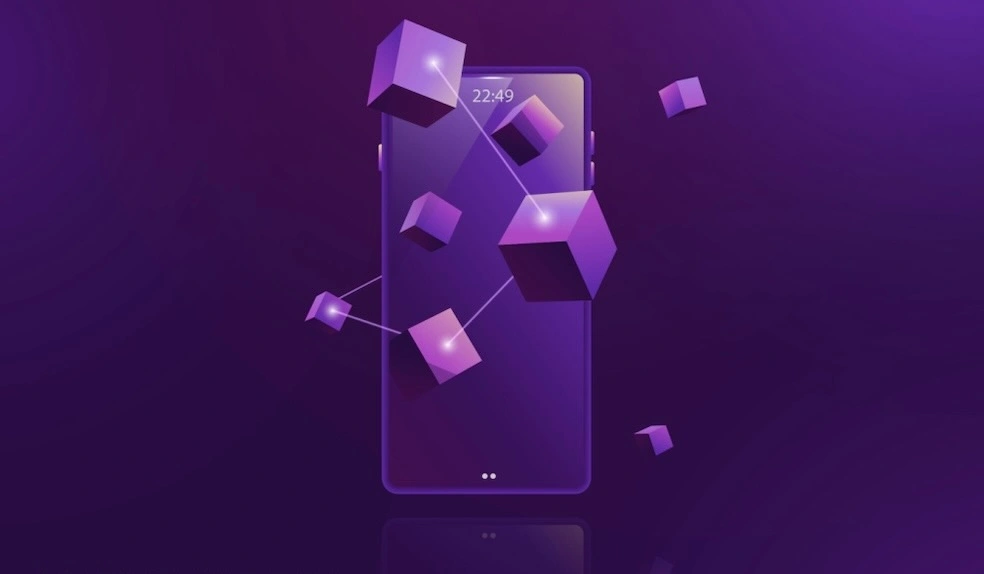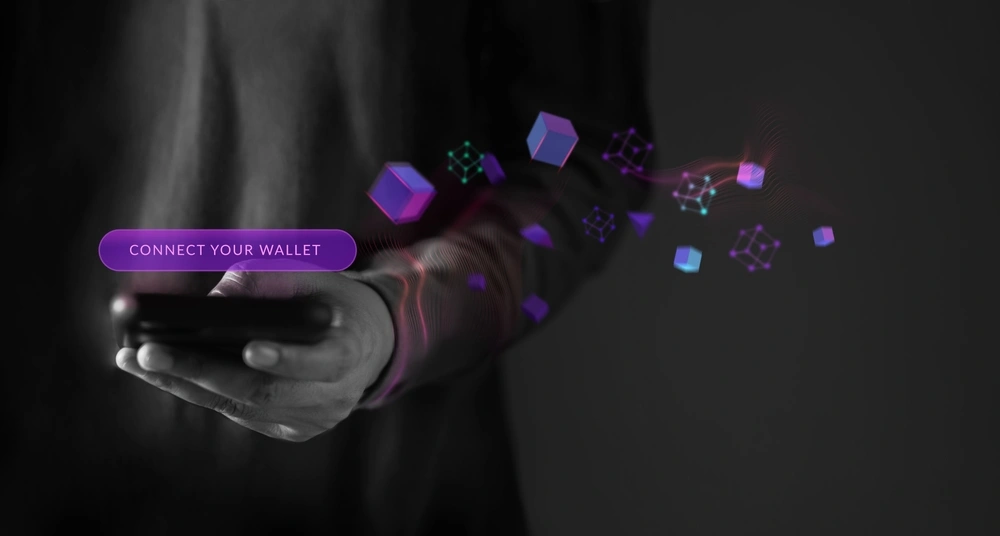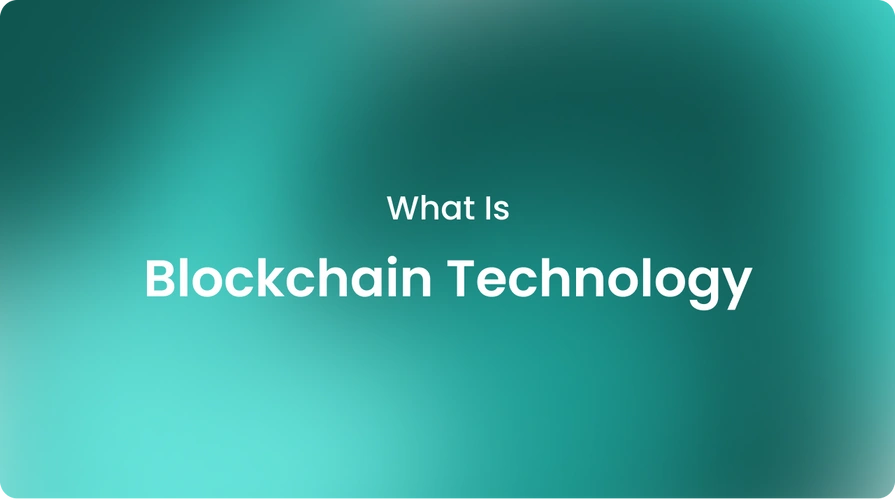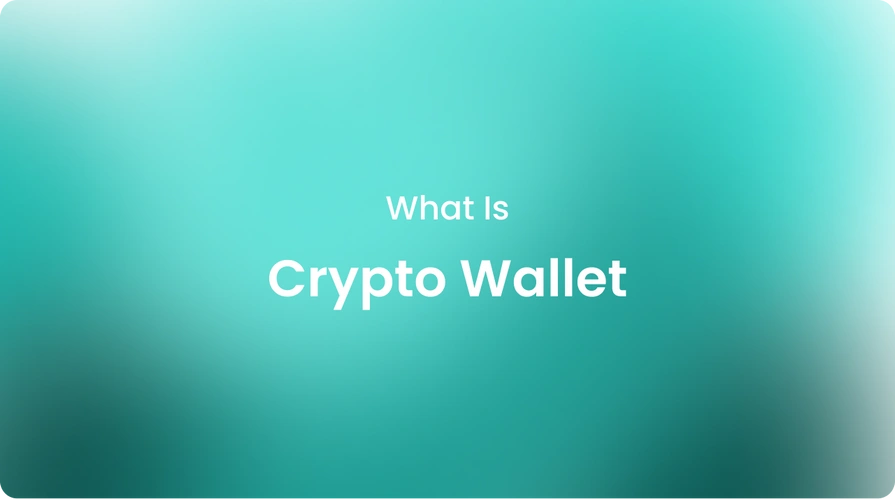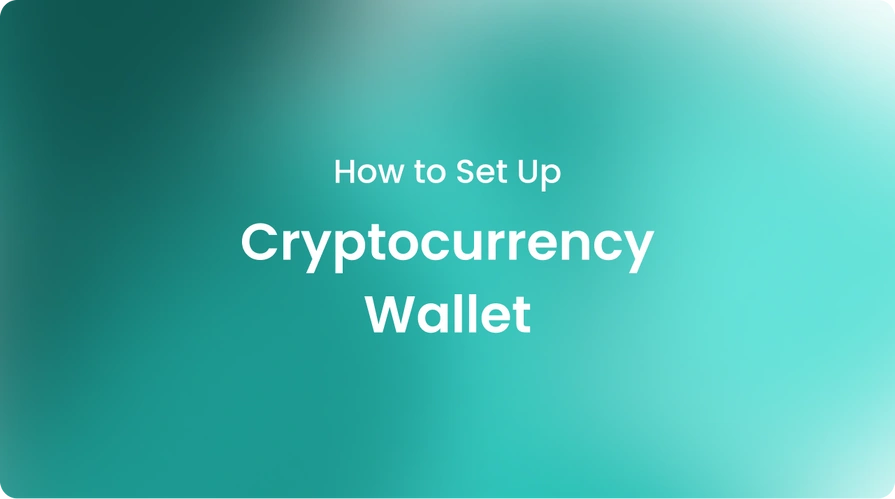|knowledgehub, technology
Common Blockchain Wallet Questions Answered!
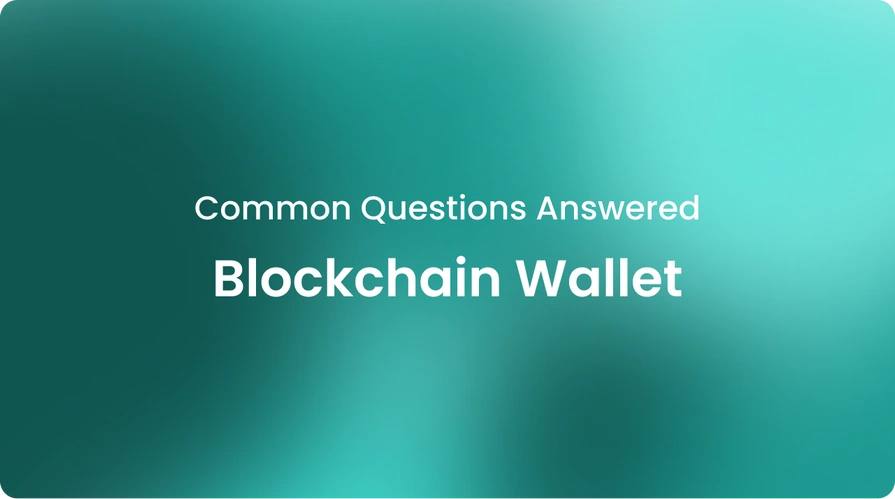
Blockchain wallets can seem confusing or intimidating to those new to the cryptocurrency space. Join us in this article, where we'll break down some of the most frequently asked questions about blockchain wallets in a completely beginner-friendly way.
By the end, you'll have a solid understanding of what blockchain wallets are, how they work, how to create one, how to use it, and more. Let’s start to explore!
What is a blockchain wallet?
A blockchain wallet is a digital wallet that allows users to store, send, and receive cryptocurrencies, stablecoins, and altcoins. At its core, a blockchain wallet contains a public address, which you share with others, as well as a private key that only you have access to.
Powerful cryptography secures anything stored in your crypto wallet, allowing only the true owner with the correct private key to authorize transactions. In this way, blockchain wallets function much like traditional bank accounts, allowing the secure transfer and storage of digital assets.
How does a blockchain wallet work?
Blockchain wallets work through a system of public and private keys. As we described above, your public address is like an account number that you share with others to receive funds. But the private key is crucial, as it serves as your unique digital signature to authorize transactions from your wallet.
Specifically, private keys are long strings of numbers and letters that prove ownership of funds at a given public address. Without access to the private key, no one else can spend or transfer crypto coins from your wallet. This two-factor authentication system ensures the utmost security.
Is a blockchain wallet safe?
Following proper security practices ensures that blockchain wallets are indeed very safe. Wallets employ core cryptography, such as elliptic curve signatures, which ensures extreme security.
However, as with any digital asset, there are risks to consider as well. Chief among these is protecting access to your private keys. As the saying goes, not your keys, not your coins.
So be extra cautious about storing private keys securely, avoiding malware and phishing scams, and only using trusted blockchain crypto wallet providers and platforms. With care and diligence, blockchain wallets offer a very high level of protection for digital assets.
What is a private key wallet on blockchain?
A private key wallet, also sometimes called a "software wallet," is a type of crypto wallet where you control and store the private keys yourself directly. This contrasts with custodial wallets, where a third party holds the private keys for you.
By holding your own keys, you achieve maximum security and autonomy over your funds. However, with power comes responsibility, so you'll need to properly back up and protect access to your private keys.
Examples of private key wallets include Cryptobunq. Proper private key management takes discipline but gives owners full sovereignty over their blockchain assets. You can easily benefit from the custody and wallet services of CBQ for a secure blockchain wallet solution.
How do I create a blockchain wallet?
Creating a blockchain wallet is usually quite straightforward. Here are the basic steps:
- Decide what type of crypto wallet works best for your needs—hardware, software, or exchange-based. Consider how you'll access and use it.
- Visit the website or app store page for your chosen wallet provider. Popular options include Cryptobunq.
- Follow the on-screen prompts to set up your new account by coming up with a strong password or passphrase. Make sure to properly back it up.
- Verify your email and complete any other mandatory steps, like accepting the terms of service.
- Display your new public address. Consider printing or saving the backup recovery phrase in case you ever need to restore access.
- Optionally, add a small test transaction to get familiar with the interface.
- And voila, you're in business with your shiny new blockchain wallet!
It only takes a few minutes to get started. The key is then keeping your wallet, private keys, and recovery seed phrase safely tucked away and secure.
Companies like Cryptobunq, which provide private key management, exchange APIs, and other blockchain infrastructure services, are well-suited to serve users seeking a secure and feature-rich blockchain wallet solution.
Cryptobunq is a one-stop-shop crypto service provider that you can trust, from batch payments to tokenization. As an expert, CBQ provides secure and reliable crypto solutions for you!
If you need more guidance you can check out “Blockchain technology”, “How to invest in blockchain?” “Blockchain as a service”, and “How to set up a cryptocurrency wallet?” for more information.
How do I activate a blockchain wallet?
Once you've created a blockchain wallet by downloading an app or visiting a web portal, you'll typically need to perform a few additional steps to fully activate it. Here are the most common activation requirements:
- Click the link sent during signup to verify your email address. This confirms your identity.
- Validate your phone number through a text message with a code. Two-factor authentication provides an extra layer of security.
- Add basic profile details, like your name, for KYC and AML compliance if required by local regulations.
- Transfer a small amount of the main cryptocurrency to "top up" your wallet. This activates deposit addresses.
- Run through any mandatory onboarding tutorials within the wallet interface.
- Keep your crypto wallet, passwords, private keys, and seed phrases backed up safely in multiple secure locations.
With these simple activation steps complete, you'll then be able to send, receive, and fully utilize your new blockchain wallet to transact with cryptocurrencies.
How do I know the blockchain wallet address?
Every blockchain wallet has a unique public address associated with it that you can use to receive digital assets. This alphanumeric code acts similarly to a bank account or wire transfer number.
To find your blockchain wallet address:
- Open your wallet app or website interface.
- Click the "Receive" or "+" button to display payment details.
- Show your public cryptocurrency address.
- Consider labeling the address for future reference.
- You can write it down or scan the QR code to send crypto coins.
It's important to triple-check that the address is correct before requesting deposits. Addresses are case-sensitive, so copying and pasting reduces human error risk.
Familiarize yourself with your blockchain wallet addresses for maximum convenience later on. Bookmarking addresses in your browser also makes them readily available whenever needed.
How do I use a blockchain wallet?
Now that you've created and activated your new blockchain wallet, there are some basic functions you can perform.
Here are some of them:
Send and receive cryptocurrency
Use the "Send" feature to pay others, or the "Receive" tab to get deposits using your public address.
Check balance
View the total value and amounts of supported digital assets in your wallet.
Buy/sell crypto
Many crypto wallets integrate directly with crypto exchanges for convenience.
Request or send from other wallets
Peer-to-peer crypto payments with anyone!
Stake and earn rewards
Stake coins actively in proof-of-stake blockchains.
Browser extensions
Use Web3 and Web3 storage capabilities on sites.
ERC-20 token support
Store a wide range of compatible crypto-collectibles.
Links to dApps
Connect your wallet to decentralized applications.
Follow on-screen instructions and take care when authorizing transactions. Have fun exploring the possibilities with your new blockchain wallet!
How do I withdraw money from a blockchain wallet?
Withdrawing money stored as cryptocurrency in your blockchain wallet is generally just a few clicks away.
- Select the "Send" feature within your wallet app.
- Choose the cryptocurrency you'd like to withdraw.
- Enter the external blockchain wallet address you're sending to—perhaps your bank account or another crypto exchange.
- Verify the address is correct before proceeding to avoid costly mistakes.
- Enter the amount you want to withdraw from your wallet balance.
- Review the transaction details, then confirm and authorize the withdrawal.
- Wait for the standard number of cryptocurrency network confirmations (typically 6+) to complete.
- Check the receiving crypto wallet address or bank account to verify the funds arrived safely.
- You have successfully cashed out the cryptocurrency stored in your blockchain wallet!
Just be aware of any network fees and ensure your wallet has sufficient funds for the transaction to go through. Withdrawals typically post within an hour, depending on network congestion levels.
Common blockchain wallet questions answered! Hopefully this article has helped explain what blockchain wallets are, how they operate securely, and the steps for crucial functions like activating, using, and withdrawing funds from them.
Digital assets are here to stay, so get acquainted with blockchain wallets for easy participation in the emerging crypto economy with secure crypto service providers, such as Cryptobunq!
The bottom line
To sum up, blockchain wallets are secure digital vehicles for storing and transacting cryptocurrencies. As we've explored in this article, they work through powerful cryptography built upon public and private keys.
Properly protecting wallet addresses, private keys, and passwords enables blockchain wallets to provide extremely high levels of security for digital assets. Popular options like Cryptobunq offer all the essential features with easy-to-use interfaces.
Services from Cryptobunq, like node as a service and checkout and invoicing, offer users and developers robust building blocks to participate in this emerging financial future. For those interested in the next evolution of money and finance, becoming acquainted with blockchain wallets is an important first step.
With care and diligence, anyone can now easily take part in the crypto revolution. With offerings from Cryptobunq, participation has never been simpler or more reliable. Contact us to learn more about getting started with crypto through Cryptobunq!
